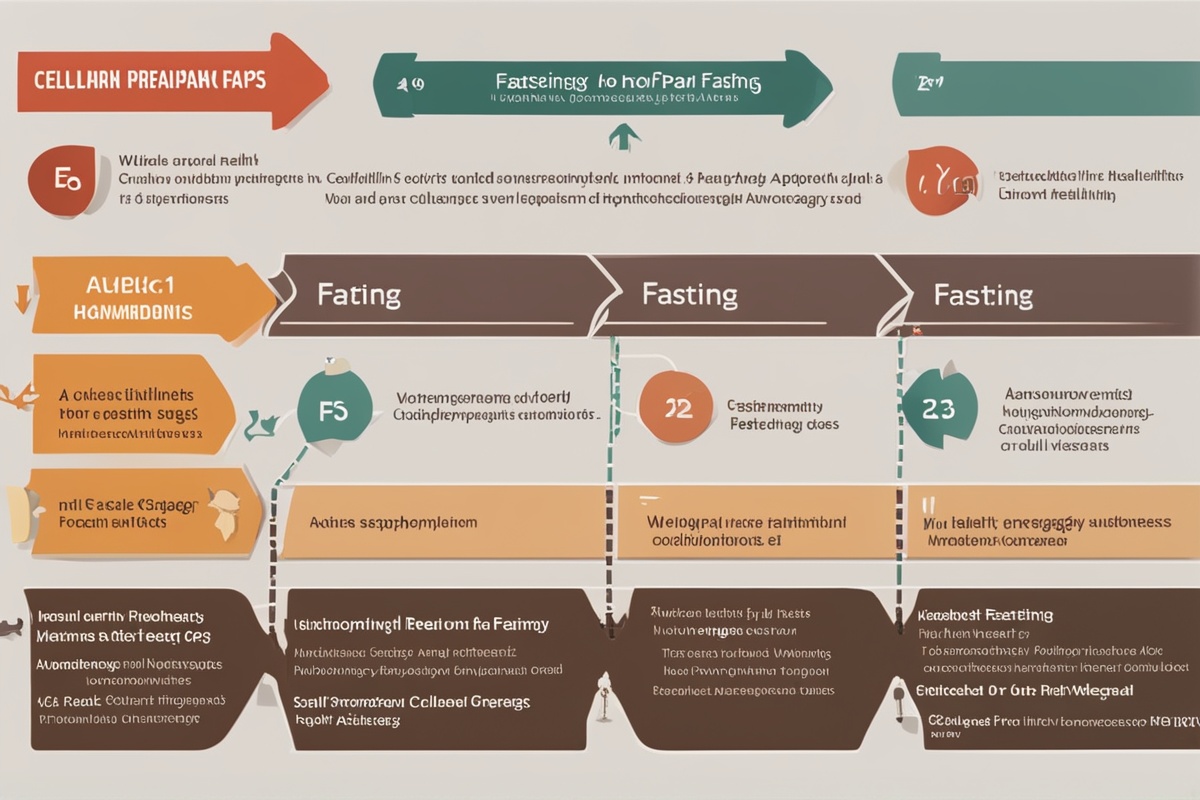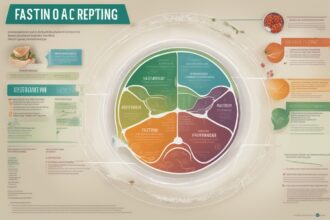Have you ever wondered how your body cleans house at a cellular level? Enter the fascinating world of fasting autophagy, a natural process that’s gaining attention in the health and wellness space, especially among fasting enthusiasts. Autophagy, often described as the body’s “self-cleaning” mechanism, plays a crucial role in maintaining cellular health, fighting disease, and even slowing aging. When paired with fasting, this process becomes a powerhouse for rejuvenation. In this post, we’ll explore what autophagy is, how fasting triggers it, and how you can harness its benefits for optimal health. Let’s dive into the science and practical steps to make autophagy fasting work for you!
What Is Autophagy and Why Does It Matter?
Autophagy, derived from Greek words meaning “self-eating,” is a cellular process where your body breaks down and recycles damaged or unnecessary components. Think of it as a deep clean for your cells—removing old proteins, dysfunctional organelles, and even pathogens to make way for new, healthy structures. Discovered by Japanese scientist Yoshinori Ohsumi, who won the Nobel Prize in 2016 for his work, autophagy is now recognized as a key player in preventing diseases like cancer, Alzheimer’s, and diabetes. But here’s the exciting part: fasting, particularly intermittent fasting, is one of the most effective ways to activate this process. By understanding fasting autophagy, you can tap into a natural tool for longevity and vitality.
How Does Fasting Trigger Autophagy?
When you fast, your body shifts gears from using readily available glucose for energy to burning stored fats through a process called ketosis. This metabolic switch, often achieved after 12–16 hours of fasting, creates a state of cellular stress that signals autophagy to kick in. Without incoming nutrients, your cells start to “clean up” by digesting internal waste. Studies suggest that prolonged fasting—think 24–48 hours—can significantly ramp up autophagy benefits, though even shorter fasts like intermittent fasting (16:8 method) show promising results. Essentially, fasting creates the perfect environment for your body to prioritize repair over growth, making fasting for cellular renewal a game-changer.
Key Benefits of Fasting Autophagy for Health
The perks of combining fasting with autophagy are nothing short of remarkable. Here are some scientifically backed benefits that highlight why this duo is a cornerstone of modern health practices:
- Anti-Aging Effects: Autophagy clears out damaged cells, which can reduce oxidative stress and slow the aging process, keeping you looking and feeling younger.
- Disease Prevention: By removing toxic proteins and pathogens, autophagy may lower the risk of neurodegenerative conditions and certain cancers.
- Improved Metabolic Health: Fasting-induced autophagy enhances insulin sensitivity and supports fat loss, making it a powerful tool for managing weight and diabetes.
- Boosted Immunity: The process helps eliminate harmful bacteria and viruses within cells, strengthening your body’s defense system.
These autophagy fasting benefits are why so many health experts advocate for fasting as a lifestyle, not just a diet.
Practical Tips to Activate Autophagy Through Fasting
Ready to jumpstart fasting autophagy in your own life? It’s easier than you might think, but it does require some strategy. Fasting isn’t a one-size-fits-all approach, so experiment with what works for your body. Below are actionable tips to help you get started and maximize cellular repair through fasting:
- Start with Intermittent Fasting: Begin with a 16:8 schedule—fast for 16 hours and eat during an 8-hour window. This is often enough to initiate autophagy after a few days.
- Extend Your Fast Gradually: Once comfortable, try a 24-hour fast once a week to deepen the autophagic response, ensuring you stay hydrated.
- Limit Protein Intake: Excessive protein can inhibit autophagy by activating mTOR pathways, so focus on moderate intake during eating windows.
- Incorporate Exercise: Light activity like walking during fasting hours can enhance the cellular stress needed to trigger autophagy.
- Avoid Overeating Post-Fast: Breaking your fast with a balanced, nutrient-dense meal helps sustain the benefits of autophagy without shocking your system.
Remember, consistency is key. Over time, your body will adapt to fasting, making autophagy activation a seamless part of your routine.
Who Should Be Cautious with Fasting for Autophagy?
While fasting autophagy offers incredible benefits, it’s not for everyone. Fasting can be stressful on the body if done improperly or by individuals with certain conditions. Pregnant or breastfeeding women, those with eating disorders, or people with severe medical issues like advanced diabetes should consult a healthcare provider before attempting prolonged fasts. Additionally, overdoing fasting can lead to fatigue, nutrient deficiencies, or hormonal imbalances. Listen to your body—if you feel weak or dizzy, break your fast and reassess. The goal of fasting for cellular health is to support your well-being, not to push yourself to extremes.
The Science Behind Fasting Autophagy: What Research Says
The link between fasting and autophagy isn’t just anecdotal; it’s backed by a growing body of research. Studies on animals and humans show that caloric restriction and fasting upregulate autophagy-related genes, promoting cellular repair. For instance, a 2018 study published in Nature highlighted how fasting enhances autophagic activity in the liver and brain, potentially protecting against age-related decline. While more human trials are needed, early evidence suggests that even short-term fasting can improve biomarkers of health tied to autophagy. This science underscores why fasting for longevity is more than a trend—it’s a promising frontier in preventive health.
In conclusion, fasting autophagy is a powerful synergy that taps into your body’s innate ability to heal and renew itself. By understanding how fasting triggers this cellular cleanup, you can make informed choices to enhance your health, from boosting immunity to potentially extending your lifespan. Whether you’re new to fasting or a seasoned pro, integrating autophagy-focused practices into your routine can yield transformative results. Start small, stay consistent, and consult with a professional if you’re unsure about your approach. Here’s to unlocking the full potential of autophagy fasting benefits—your cells will thank you!






